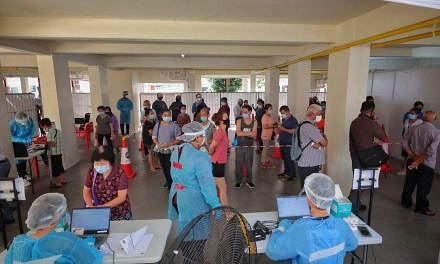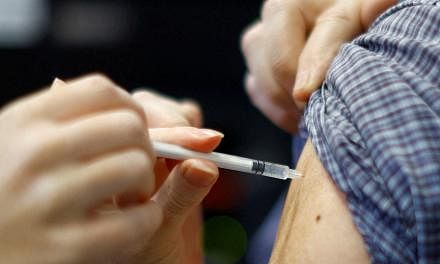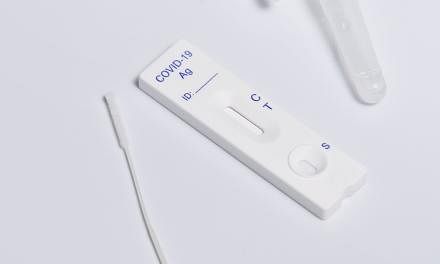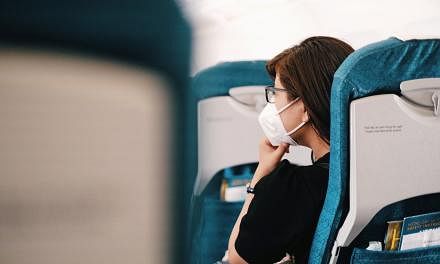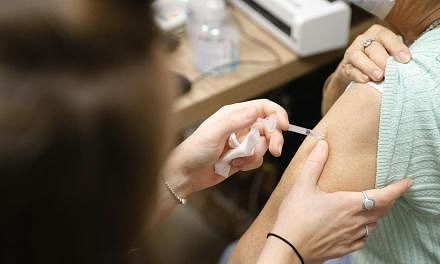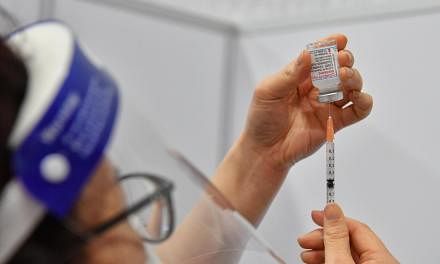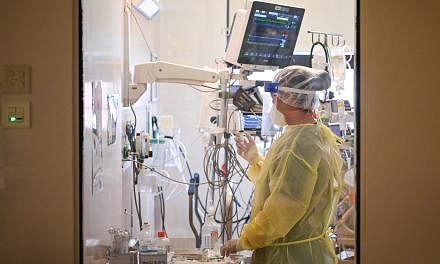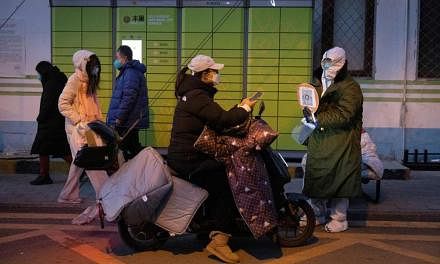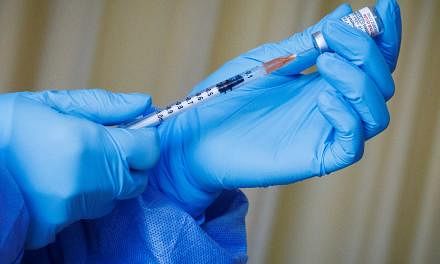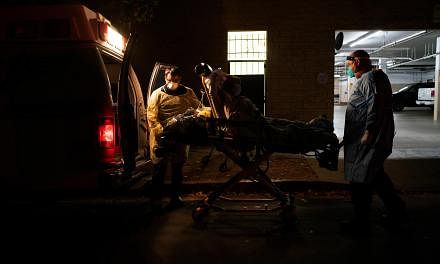SINGAPORE - Singapore recently announced that it is moving to a new Covid-19 inoculation strategy, with the focus on an individual’s vaccination being up to date, similar to how influenza jabs are administered seasonally.
This comes as the country fights another wave of coronavirus infections, spurred by the emergence of the Omicron XBB sub-variant.
With most people having received their primary vaccination series, as well as at least one booster, when should one take a second or third booster shot? The Straits Times asks the experts.
Q: Who is eligible for a second or third booster shot?
A: Those aged 50 and above, as well as those who are medically vulnerable, can walk into any joint vaccination and testing centre to receive an additional booster dose of an mRNA vaccine between five months and one year from their last dose.
There are currently 10 such centres across the island in locations such as Ang Mo Kio, Bukit Merah, Jurong East, Pasir Ris and Yishun.
They must have already achieved minimum protection, defined as at least three doses of an mRNA vaccine such as those from Pfizer-BioNTech or Moderna, or four Sinovac-CoronaVac doses.
They should get the bivalent version of Moderna’s Spikevax vaccine, which has replaced the original formulation of the vaccine here, the Ministry of Health (MOH) recommended.
Q: What is a bivalent vaccine and will it protect me from the XBB sub-variant?
A: Described by Health Minister Ong Ye Kung as a “two-in-one” formulation of the original vaccine, the bivalent vaccine is an updated one that targets the Omicron variant in addition to the original Sars-CoV-2 strain.
Said Professor Teo Yik Ying, dean of the National University of Singapore’s Saw Swee Hock School of Public Health: “This means there will be some additional protection against Omicron sub-variants, including XBB, compared with the previous vaccines that Singapore has been administering.”
The Moderna bivalent vaccine was approved by the Health Sciences Authority (HSA) in September and rolled out on Oct 14.
It is currently available at nine joint testing and vaccination centres, excluding the one in Bishan. It is also available at the MOH vaccination centre in Jurong West.
Pfizer’s bivalent vaccine is being evaluated and is expected to be available here by the end of the year.
Q: I have already had four doses of an mRNA vaccine, including two booster shots. Will taking a third booster – that is, a fifth shot in the space of less than two years – affect my immunity system in the long run? Who is advised to take the third booster, and when should they take it?
A: It is recommended that people aged 50 and above – including those who have already taken two booster shots – receive an additional booster dose between five months and a year after their most recent dose to keep their vaccination status up to date.
There is no harm in taking multiple boosters, so long as they are spaced several months apart, said Dr Leong Hoe Nam, an infectious diseases expert at the Rophi Clinic at Mount Elizabeth Novena Specialist Centre.
Government agencies around the world have recommended two or more booster doses, and have monitored their safety and efficacy, he added.
Countries such as the United States, where more than four million people have taken the bivalent booster as at end-September, have not seen severe vaccine side effects from taking multiple booster shots, he noted.
Q: I have taken four doses of an mRNA vaccine and recently recovered from Covid-19. Does the infection count as a booster?
A: A Covid-19 infection is not considered a booster dose, MOH said on its website.
Dr Leong said this is because the virus has mutated and adapted to existing vaccines. “Having had Delta, for example, offers little additional protection for Omicron,” he said.
MOH has recommended that people who have recovered from Covid-19 and completed the recommended primary vaccination series receive a booster dose, which should be administered either five months after the most recent dose of a vaccine or three months after infection, whichever is later.
Prof Teo said it is strongly recommended that those who had previously taken four doses of the mRNA vaccine, and who had got infected by Covid-19 before, should take the bivalent vaccine to reduce their chances of severe disease.
The Health Minister has said that being vaccinated and infected confers hybrid immunity, and that those who have been infected should still take their boosters diligently.
Q: Can I take a non-mRNA vaccine, such as Sinovac or Novavax, as a booster?
A: While the Sinovac-CoronaVac vaccine was earlier available as a booster for only those medically ineligible to receive the mRNA and Novavax/Nuvaxovid vaccines, those who have yet to receive a booster dose can be given the Sinovac vaccine as a booster, even if they are not medically ineligible for other vaccines.
They are, however, recommended to consider taking either the mRNA vaccines from Moderna and Pfizer-BioNTech or the Novavax vaccine as a booster due to the better protection conferred.
The Novavax/Nuvaxovid vaccine remains available at the joint testing and vaccination centre in Bishan, as well as the Yishun and Jurong polyclinics.
Q: I am below 50 and have already received three doses of an mRNA vaccine. Should I take an additional booster when it becomes available for my age group?
A: Yes, said Prof Teo.
“As and when the additional boosters can be extended to adults under the age of 50, they are highly recommended to come forward to take the boosters,” he said.
They are currently available to those aged 50 and above.
Mr Ong said in Parliament on Oct 20 that bivalent Covid-19 vaccination boosters will be offered to those aged between 18 and 49 later in 2022.



